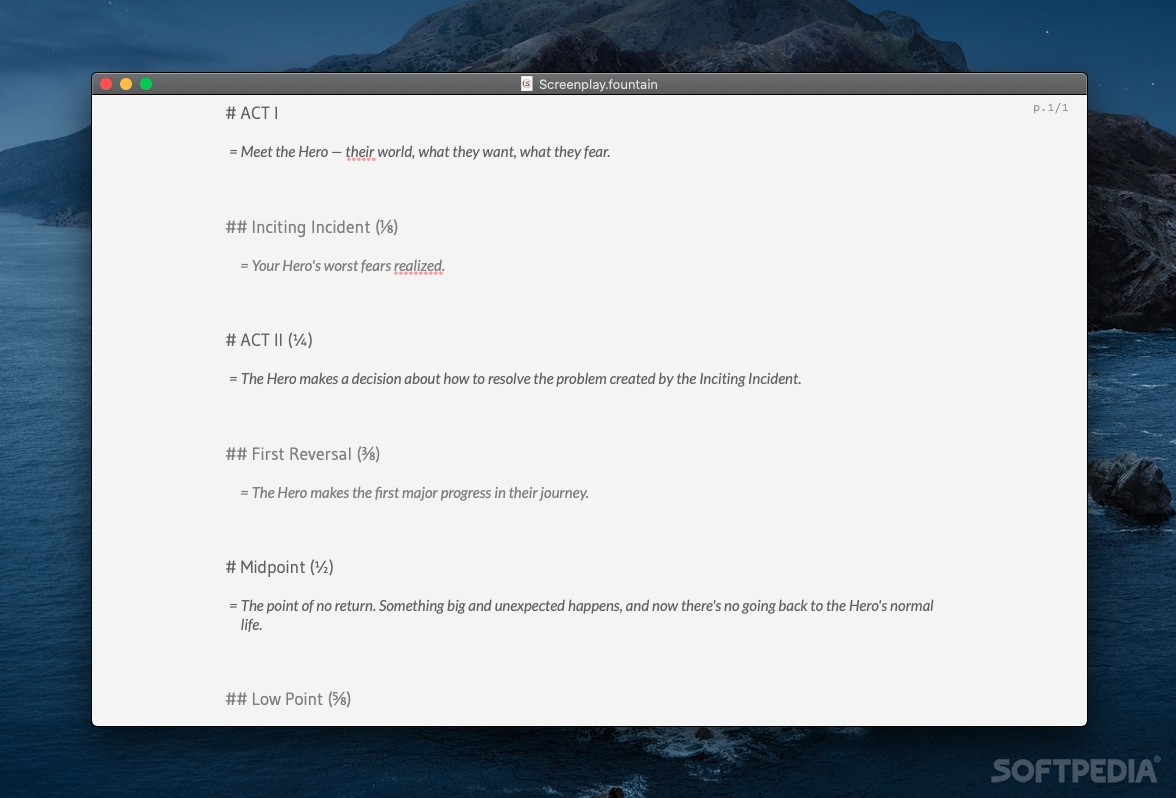

- Slugline cracked app mac install#
- Slugline cracked app mac driver#
- Slugline cracked app mac Patch#
- Slugline cracked app mac upgrade#
- Slugline cracked app mac software#
In order to resolve those devices, I had to add stub DNS zones to my local DNS. In fact, they were the noisiest devices on the network attempting to sync time. Most of my devices I was able to reconfigure to use my local time server, however many devices do not expose that configuration to the end user - in particular iOS devices and Apple TVs. I was able to configure a local NTP server using OpenBSD’s OpenNTPd, which uses ephemeral source ports by default. This makes things very difficult in a modern home with all the following devices using NTP: Therefore, while behind an AT&T network, it seems not possible to run ntpd without some kind of middleware piece to mangle your UDP packets (e.g., iptables). Sadly, the Network Time Foundation’s reference implementation of ntpd only permits using an ephemeral source port when using ntpdate and not from ntpd itself.

I thought this was odd, but found the following resources: However, I noticed immediately my NTP packets were being filtered.
Slugline cracked app mac upgrade#
I had been having some packet loss issues and hoped the upgrade would help (it seemed to). I recently upgraded my AT&T modem from the NVG 589 to the Pace 5268AC at the insistence of a technician out to repair my ONT. You want to make sure you see: configuration: driver=nvidia latency=0Īnd not: configuration: driver=nouveau latency=0
Slugline cracked app mac Patch#
Once you have the patch saved into your home directory, you can apply it and begin the installation using these commands: $. This combined patch can be applied to the directory created using sh NVIDIA-Linux-x86_ -x.Ĭlick here to download nvidia-304.137-bionic-18.04.patch.
Slugline cracked app mac software#
Here is the combined patch file (the aforereferenced patches are “meta” patches, as they’re patches to the package and not the software itself, which is sort of like a Russian nesting doll of software changes).
Slugline cracked app mac install#
# cat /etc/modprobe.d/nfĪfter the system finishes rebooting, we need to install the necessary build tools: $ sudo apt install gcc make build-essential gcc-multilib dkms mesa-utils To do that, enter these commands: $ sudo su. However, before we get to patching and installing the official nVidia binary drivers, we need to disable nouveau, the open source version. There’s actually two patches you’ll need to apply: buildfix_kernel_4.14.patch and buildfix_kernel_4.15.patch Thankfully, Seth Forshee has already created a patch! I’m not sure the correct way to patch an Ubuntu PPA, so I manually applied the patches to nVidia’s installer file. According to Ubuntu bug #1763648, Canonical will no longer be including support for many older GeForce cards, including the 7300 GT.
Slugline cracked app mac driver#
The bigger challege was getting the nVidia driver to work. Unplug your Ethernet, reboot, and you should now be able to see your available WiFi networks. The post outlines instructions if you need to do it offline as well. If you have network connectivity already via an Ethernet cable, just go ahead and type sudo apt install firmware-b43-installer. As usual, Stack Exchange has a great, thorough answer. There is an error in the dmesg output that directs you to the kernel wiki page, but I did not find that particularly useful.

The AirPort card was easy enough to fix and this is well-documented. I ended up having to burn an actual DVD for the install to work I could not get either native EFI solution to work.Īfter installing Ubuntu, there were two things not working out-of-the-box: the AirPort card and the nVidia drivers. Matt Gadient wrote a very useful blog post describing the problem and a few different fixes. You can avoid this problem by skipping EFI altogether and going into normal BIOS booting. Unfortunately the Apple EFI on it only supports 32-bit, and so you will likely be unable to use normal install ISOs. This older model iMac comes with the Core2Duo chipset, which is 64-bit. I thought it might be fun to put my Late 2006 iMac ( iMac6,1) to some use and install the latest version of Ubuntu on it: 18.04 Bionic Beaver.


 0 kommentar(er)
0 kommentar(er)
